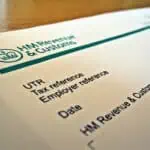Tax Return Appeals Guide
Reading Time:
You may have received a letter from HMRC stating they are looking into your self-assessment or Corporation Tax returns and that they have amended your figures to increase your tax liability.
Ninety-nine times out of a hundred, this change is accurate. However, the one time the figures come back wrong, whether due to a mistake on HMRC’s part or due to information left out, you need to let them know so you do not get overcharged.
A tax appeal usually covers these areas:
- Your tax bill (EG Income Tax, Corporation Tax, VAT)
- A claim for tax relief
- A request for information or to check your business records
- A penalty (for example if you paid your tax late or filed your tax return late)
It can be distressing if HMRC decides your tax affairs and you believe they’ve made a mistake. If you are unsure about the HMRC judgement, you can seek assistance from HMRC or an experienced tax expert. In addition, you may appeal HMRC’s judgement in certain circumstances — the letter you receive from HMRC will inform you whether you can appeal their original decision.
We have put together the following guide giving an overview of the appeal process. We will help you work through all the stages of resolving the HMRC tax dispute, which includes appealing to the independent tax tribunal on your behalf.
What is a tax return appeal?

A tax return appeal is a written request to HMRC asking them to reconsider their change to your return figures or a decision they have made. This appeal can be for various reasons, but the following are the main ones:
- The legislation is unclear or open to interpretation
- The taxpayer takes a different view from HMRC on the interpretation of the legislation, or the taxpayer does not accept HMRC’s published view in a press release or statement of practice etc.
- The taxpayer believes HMRC has made a mistake which has not been rectified
A point to note here is that HMRC is not a law enforcement agency. They apply the legislative laws regarding taxes. So, if you feel there is an issue with what they have decided, you should read the legislation and see if you can develop a different way of reading it or approach a Solicitor if you feel very strongly about the outcome.

How long do you have to make an appeal?
You usually have 30 days to appeal HMRC’s judgement. If you’re mailing it, use recorded delivery to ensure it gets there, as HMRC has a significant backlog.
Appeals received after the 30 days may be accepted (so make sure you leave enough time or the post to get there) if there is a reasonable excuse. Posting it on day 30 is not a reasonable excuse. However, if your appeal is not accepted, there is a second option. Appeal to the Tribunal, and they may accept the late appeal.
You can also request a tax postponement from HMRC during the appeal process. However, if you should pay the tax, you will be charged interest on the unpaid amount.
If you do not request a postponement, you will have to pay the tax. However, if you win the appeal, you will get refunded if appropriate.
What happens if an appeal is not agreed to by HMRC?
In this case, HMRC can review your claim. You must respond within 30 days (again in writing) to accept the review. If you agree, an HMRC officer not previously involved in your case will review the decision or amendment. You can appeal to this officer (in writing), and the review usually takes 45 days. If it takes longer, HMRC should contact you for permission to extend. Notification of the review outcome is due within the agreed period.
When the review is completed, the officer will give their decision on the matter. If you still disagree with the decision or amendment of the review officer, you can ask for your appeal to be heard by the Tribunal within 30 days of you receiving the review conclusion letter.
If you are not offered a review at all in the first place, you can ask HMRC to review your case or ask the Tribunal to consider your appeal.
Who and what makes up a Tribunal?

The Tribunal is a legal body separate from HMRC. It is made up of two people: a legally qualified judge and a non-lawyer member (i.e., an Accountant)
Your appeal will go to the first tier of the Tribunal and will be heard in the Tax Chamber, and if the appeal in question is overly complicated, it will then go to the Upper Tribunal.
When the First Tier receives your appeal, they will decide what category it falls into, these being:
- Default Paper
- Basic
- Standard
- Complex
Default Paper
The Tribunal will ask HMRC to make their case both to them and to you. You get 30 days to respond, and the Tribunal will make its decision in writing.
Basic
Appeals will be dealt with via an informal hearing where both yourself and HMRC make your cases. The decision is usually issued at the end of the hearing.
Standard and Complex
There is a more formal hearing. HMRC has 60 days to provide a statement of their case, and you get 42 days to respond. The appeal will then be heard, and the Tribunal, within 28 days, will issue a decision.
Where the first Tribunal has dealt with your case, and you disagree with it, you can make another appeal to the Upper Tribunal. You have to have the permission of either Tribunal for this appeal to be made and must request in writing within 56 days of the date the First-Tier decision was received. Appeals can only be made on the point of law, so make sure you have one ready.
Decisions by the Upper Tribunal are usually binding unless either party appeals their decision to the Court of Appeal. Again, you need permission from the Upper Tribunal or the Appeal court. The final appeal can go to the supreme court in rare cases.
We aim to minimise you or your company’s tax liabilities which we will do through a thorough understanding of the legislation and your business – but always keeping you on the right side of HMRC. If you, would you like to find out more about our tax advisory service call us on 0208 577 0200 or drop us an email at [email protected]






